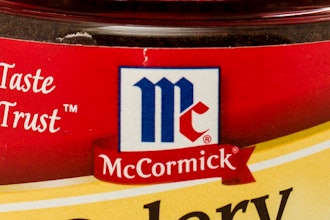
WASHINGTON — The U.S. Department of Agriculture (USDA) on Friday released the final rule for its Environmental Quality Incentives Program (EQIP). The rule updates USDA’s flagship program as directed by the 2018 Farm Bill and integrates feedback from agricultural producers and others.
“This final rule enables us to continue helping producers manage their land in the most beneficial ways possible,” said Kevin Norton, acting Chief of USDA’s Natural Resources Conservation Service. “EQIP offers producers more than 150 conservation practices and helps bridge the gap between their concerns and the opportunity to implement solutions.”
NRCS provides producers with financial resources and one-on-one help to plan and implement conservation practices through EQIP. Popular EQIP practices include cover crops, nutrient management, forest stand improvement, prescribed grazing, irrigation efficiency improvement, and water quality improvement practices. Implementing conservation practices can lead to cleaner water and air, healthier soil, and better wildlife habitat while improving agricultural operations.
EQIP applications are accepted on a continuous basis. If a producer’s application is funded, NRCS will offer an EQIP contract for financial assistance to help address the cost of implementing the practices. Payment rates for conservation practices are reviewed and set each fiscal year.
NRCS received nearly 600 comments on the interim final rule, which was published December 17, 2019. To integrate that feedback, NRCS further updated EQIP to:
- Revise its purpose statement to expressly include addressing resource concerns for organic producers, avoiding the need for more regulatory programs, and helping producers transition from the Conservation Reserve Program (CRP).
- Revise ranking protocols to expressly include consideration of an applicant’s status under CRP.
- Adjust the definition for a “comprehensive nutrient management plan” to ensure only applicable natural resources need to be considered.
- Modify the requirements for an EQIP plan of operations that includes the progressive implementation of a comprehensive nutrient management plan.
- Modify language in the national priorities to specifically include soil health and weather and drought resilience in the national priorities.
- Modify the purpose and scope of Conservation Innovation Grants to expressly include field research.
- Authorize reduced matching requirements for Conservation Innovation Grant projects aimed at helping historically underserved producers.
Updates to EQIP included in the interim final rule included:
- Creating incentive contracts and payments for incentive practices to better support locally led conservation needs.
- Requiring NRCS to offer an advance payment option for historically underserved producers.
- Raising the payment cap for producers participating in the Organic Initiative to $140,000 for contracts entered into for fiscal years 2019 through 2023. Previously, it was $20,000 per year and $80,000 for any six-year period.
- Expanding the Conservation Innovation Grant program, which is funded through EQIP, to include opportunities for On-Farm Conservation Innovation Trials and Soil Health Demonstration Trials.
The 2018 Farm Bill created incentive contracts, which address up to three priority resource concerns within targeted watersheds and other high priority landscapes. While typical EQIP contracts last five years, these contracts last five to 10 years.
The Farm Bill also enabled increased payments for priority practices, through which NRCS can designate up to 10 practices in each state to receive higher rates.
EQIP helps producers make conservation improvements on their working lands, it contributes to USDA’s Agriculture Innovation Agenda of reducing the environmental footprint of U.S. agriculture in half by 2050. Earlier this year, Secretary Perdue announced the department-wide initiative to align resources, programs, and research to position American agriculture to better meet future global demands.
View the final rule on the Federal Register. For more information on how to sign up for EQIP in your state, visit your state website from nrcs.usda.gov or contact your local NRCS field office.






















